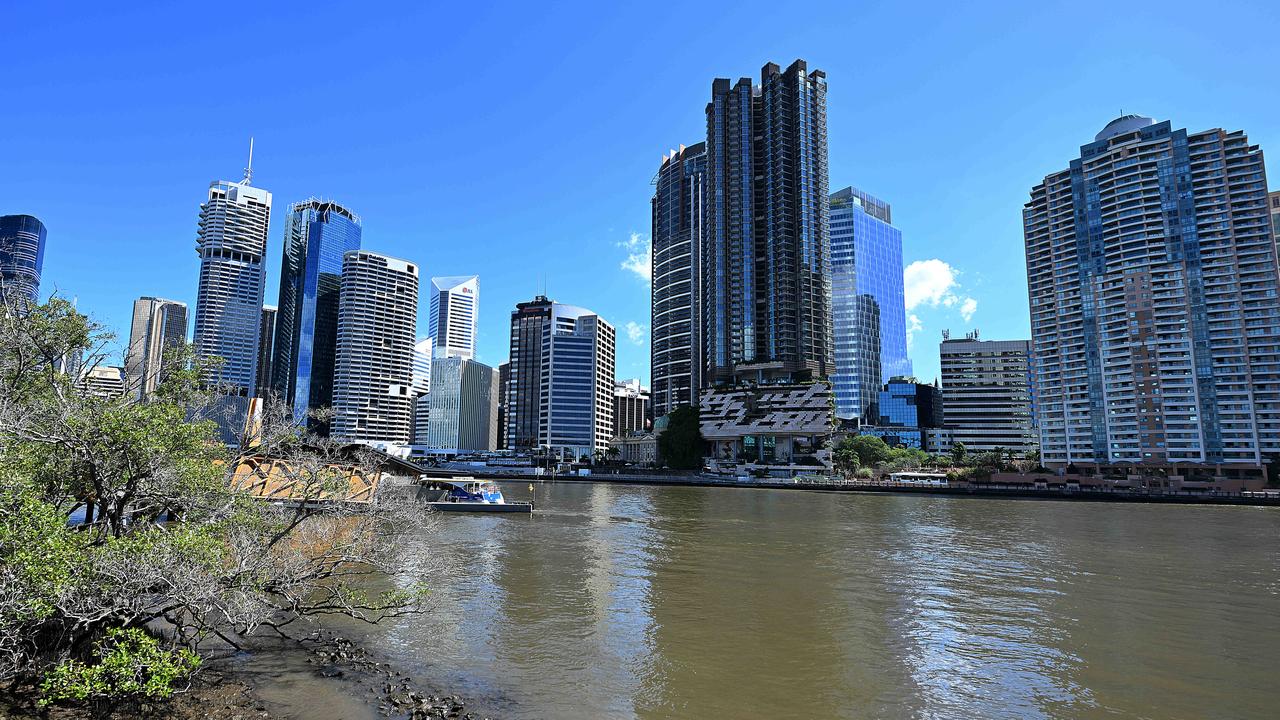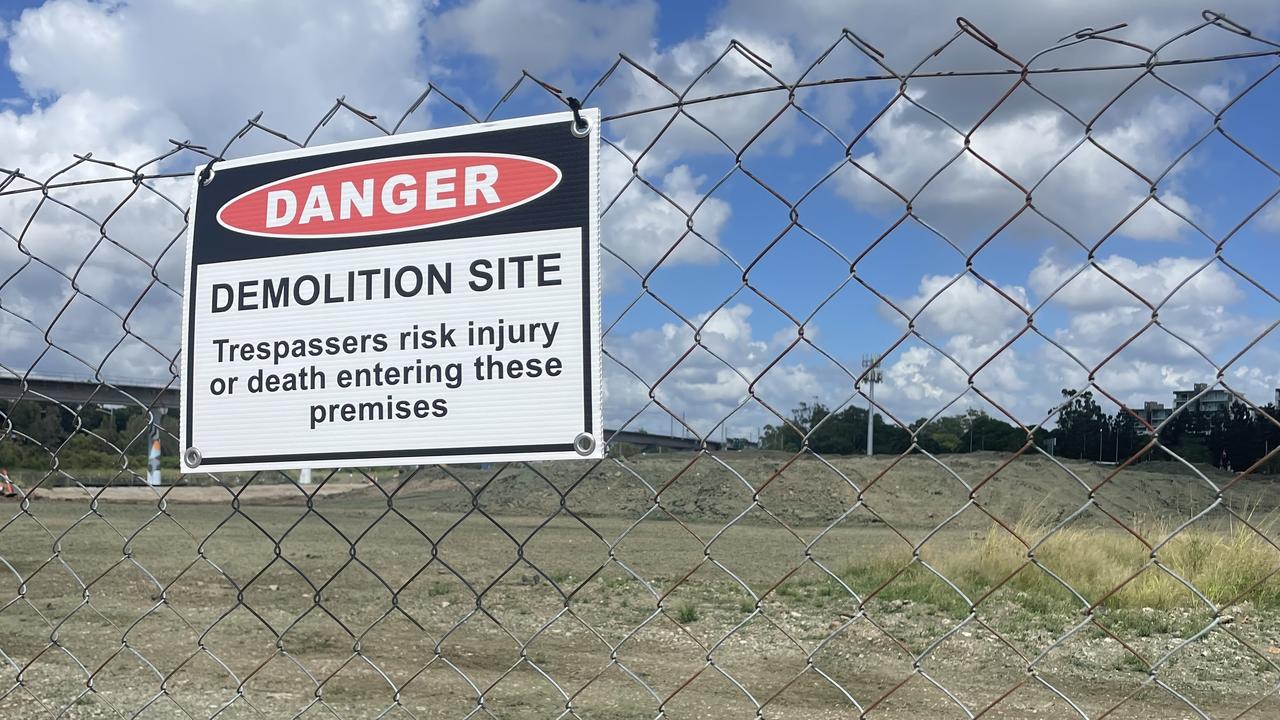Dollar down: where to get the biggest bang for your travel buck
There’s a risk that the battling Australian dollar could fall further in the months ahead, so clever currency moves may be needed.
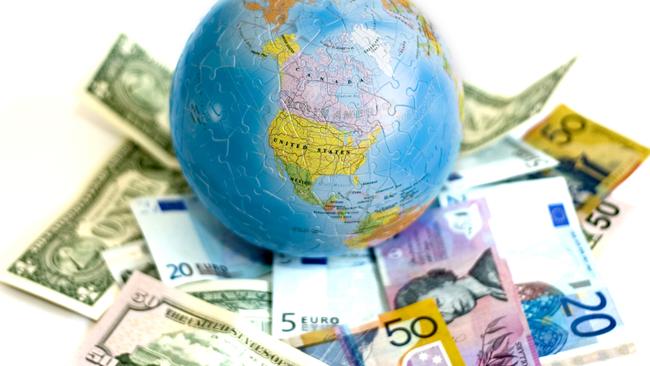
QLD Business
Don't miss out on the headlines from QLD Business. Followed categories will be added to My News.
A weaker Australian dollar is frustrating the plans of people heading overseas this Christmas or next year, and hurting the finances of those sending money offshore and buying overseas goods.
Our local currency has slumped 11 per cent against the US dollar this year, and there are fears a worsening war in the Middle East could send it sharply lower still.
It’s not just lower compared with the strong US dollar. Against the British pound we have slumped 10.5 per cent, the Aussie is 8 per cent weaker versus the euro and about 7.5 per cent lower compared with the Canadian dollar this year.
However, the Aussie is up against the Japanese yen and South African rand, and flat against the New Zealand dollar. Its gyrations can make many people rethink travel plans and destinations or the timing of currency transfers or conversions.
While the Australian dollar has rebounded strongly in the past week amid expectations of another Reserve Bank interest rate rise on Melbourne Cup Day that would make it more attractive for international investors, economists say there are key reasons for its general gloom in 2023.
OVERSEAS PRESSURES
BetaShares Capital chief economist David Bassanese said the US dollar had been strong globally because of its resilient economy and higher interest rates, and the Aussie’s global underperformance reflected weakness in China’s economic outlook.
“The Australian dollar is often used as a proxy for investing in China,” Mr Bassanese said.
“And any time there is uncertainty about the global growth outlook it’s not good for the Aussie dollar,” he said.

“If there’s an escalation of the war, people fear a slowdown in the global economy, while the US dollar tends to be a bit of a safe haven.
“Generally we are a global growth currency. When the global outlook is improving the Australian currency tends to do well.
Mr Bassanese said he expected the Australian dollar to improve in the year ahead, reaching US68c by late 2024.
“The US will eventually start cutting interest rates, and probably more than we do. Expectations of the global outlook improving will weaken the US dollar.”
CommSec chief economist Craig James said Aussie dollar weakness was driven more by the US dollar’s strength “than our own performance”, with Australia’s economy in good shape and continuing to expand.
Mr James said soft Chinese economic data was not helping it, and neither was global uncertainty.
“When there’s war in the Ukraine and Middle East, higher oil prices and potential for recessions in parts of the world, that tends to weigh on currencies like the Aussie dollar,” he said.
“The Aussie dollar has shown in the past to be a fair-weather friend.”
People travelling overseas often closely watch currency movements in the lead-up to their trip – sometimes too intensely, currency experts say.
“We find that when the Aussie has a run-up or a stronger week we are significantly more busy than when it has a fall,” said S Money director Justin Rampono.
But it was often not worth worrying too much about exchange rate swings, especially when there were so many other pre-trip issues to sort out, he said.
“Work out how much it is going to cost you if the Australian dollar drops a cent or two,” Mr Rampono said.
“Sometimes it’s not worth the stress – you would have to have a pretty big currency drop for it to cost you more than $20 or $30 (on a purchase).
“If it’s not going to make or break your holiday, don’t worry about it.”
Bank fees, card fees and transactions costs could be more detrimental to travellers’ finances, Mr Rampono warned.
“The Australian dollar may go up or down 2c or 3c in the lead-up to your holiday, but you will lose a lot more than that if you use a debit card with a 5 per cent fee,” he said.
“The big four banks pummel you with the exchange rate and international transaction fees.”
Check for credit cards charges and other fees too. American Express – popular with travellers who milk them for frequent flyer points – charges a 3 per cent currency conversion fee on personal cards.
DON’T LOCK IN THE LOT
Mr Rampono said a good way to smooth out currency moves was by paying for parts of your holiday – such as accommodation or tours – in advance so “you have effectively locked in that rate”.
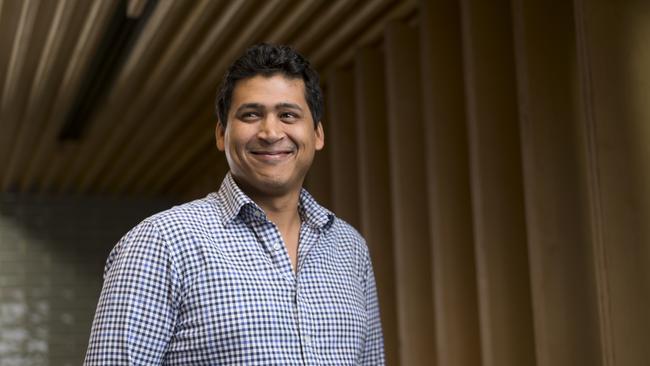
This strategy, plus buying some foreign cash and using a prepaid travel card, debit card or a credit card, is used by many overseas travellers.
“If you do purchase your currency all ahead of time and the Aussie dollar goes up, you have locked in a bad rate in comparison,” Mr Rampono said.
“I would probably caution people not to lock away everything they intend to spend,” he said.
“You don’t want to buy $3000 of US currency and then only spend $2000. Then you have to sell it back and pay the costs associated with that.”
In the months before departing, currency bargain hunters could set up a rate alert on websites or platforms including S Money, Wise, XE or OFX, Mr Rampono said. These could send daily rates or just alert you if the exchange rate reached a level you wanted.
The biggest money-waster for travellers can occur overseas when people are given an option by merchants to pay for goods or services in either the local currency or Australian dollars.
This is known as dynamic currency conversion, and experts say never choose to pay in Australian currency because the fees can be horrendous.
“Dynamic currency conversion is one of the great rip-offs that most people don’t know about,” Mr Rampono said.
The fees charged for this service were “up to the operator”, he said.
“It usually starts around 5 per cent but it can go well into the double digits.
“A simple meal could end up costing you an extra $10 and you just don’t know. It is very hard to work out that it is costing you money until you have looked at your bank statement when you are back in Australia.”
Wise Australian country manager Tristan Dakin said dynamic currency conversion fees were often between 4 and 10 per cent.
“Beyond that, you’ll also be charged additional foreign transaction fees imposed by your bank, since the transaction was made with an overseas merchant,” he said.
“You want to ensure that the conversion you’re paying is as close as possible to what you see on Google – that’s the mid-market exchange rate.
“The bottom line is that it’s going to be more expensive to pay in your home currency than in the local currency when abroad.”
WATCH FOR TRAPS
Mr Dakin said using a multi-currency card that stored different currencies could be a good option for travellers instead of their own bank’s card.
“The Wise Debit Card lets you hold over 50 currencies, and easily transact in the local currency wherever you are,” he said.
“Banks often charge foreign transaction fees when you use your bank card with an international merchant.
“As long as you’re making a purchase from a merchant outside of your country, regardless of whether you’re paying in your home currency or the merchant’s local currency, most banks charge what’s known as foreign or international transaction fee, which often ranges from 2-5 per cent of every total transaction amount.”
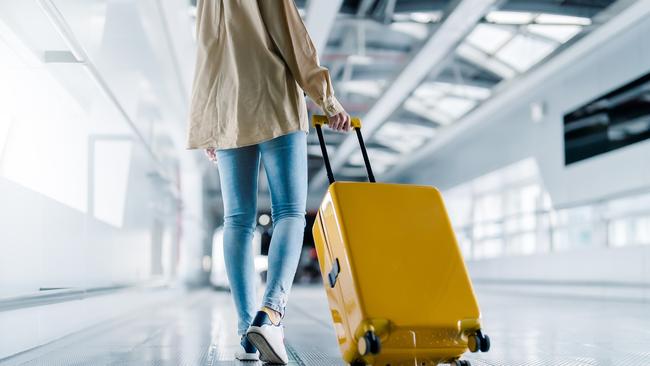
This could “massively add up if you’re away for a while”, Mr Dakin said.
He said research by Wise found that ATM fees varied dramatically between countries, and people should never withdraw cash on a credit card account because fees and interest would be high.
“If you really need foreign currency in cash, watch out for tricks like ‘0 per cent commission’ or ‘zero fees’ at cash converters. Instead, Google the amount you’re looking to convert to compare whether you’re getting a good deal.”
Currency experts also recommend avoiding buying foreign cash at an airport, where exchange rates are often their worst.
CASH STILL KING
Thecurrencyshop.com.au says the most convenient way to carry money overseas remains cash.
“Virtually everywhere accepts it,” it says.
“Some places only accept cash, particularly in Asian and African countries.
“It’s always a good idea to have a little cash handy, even if only for emergencies and tipping. But keep it secured in a safe place.”
Most people get cash before leaving. “Banks usually give competitive exchange rates and fees, but shop around various banks and other providers as you might save a few dollars.,” The Currency Shop says.
“At a bank, if you buy $1000 worth you can pay more than $25 in fees and commissions.
“Order your currency about a week before your trip and allow longer for uncommon currencies, because some money changers won’t have the currency you want in stock.”
Originally published as Dollar down: where to get the biggest bang for your travel buck


